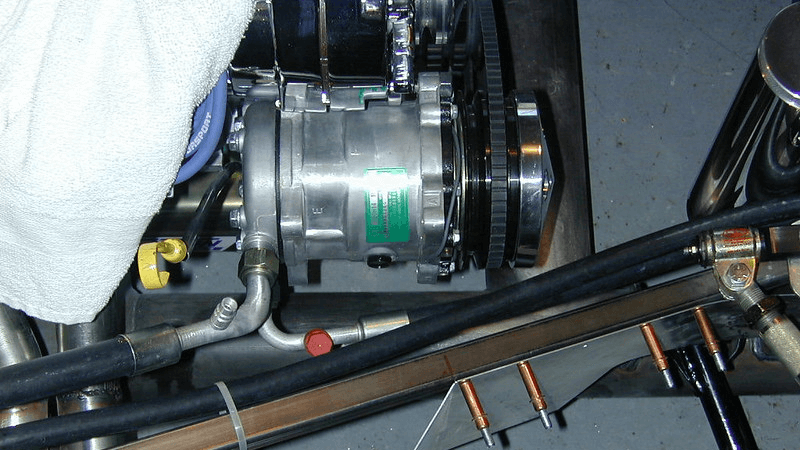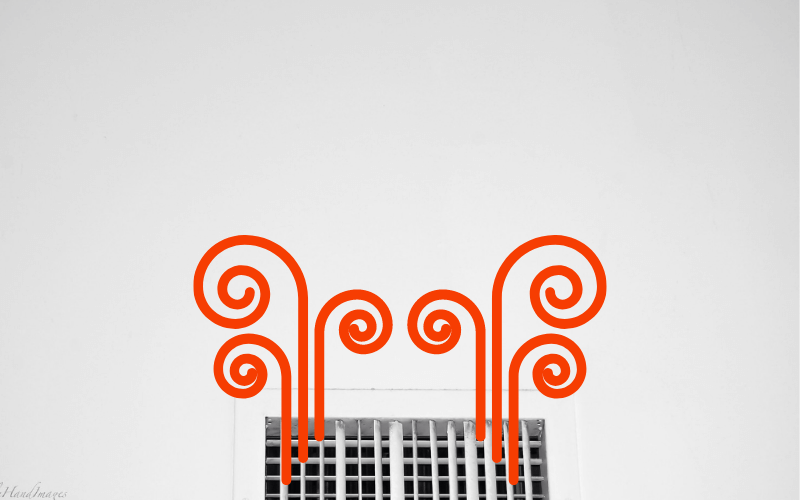An air conditioner consists of four main mechanical parts: a compressor, condenser, evaporator, and expansion valve.
The compressor is one of your air conditioner’s most essential parts. It plays a crucial role in your AC’s cooling process and keeps the AC unit working effectively and continually.
[snippet]
What is an Air Conditioner Compressor?
The compressor of an air conditioner is located in the outdoor unit. You can think of the compressor as the heart of an air conditioner, while the refrigerant is the blood. The refrigerant is cold, and as it passes through the evaporator unit, it absorbs heat and takes the form of low pressure and temperature gas. The refrigerant must be of high temperature and pressure to release the heat.
The compressor is responsible for pumping the refrigerant through the AC system and squeezing it to raise its temperature and pressure. The refrigerant then leaves the compressor as a hot, high-pressure gas. The hot and high pressure gas is pumped to the condenser where heat is released and the refigerant condenses back to liquid form.
[/snippet]
Signs & Symptoms of a Failing AC Compressor
1. Loud & Strange Sounds
As earlier said, the compressor is located outside the home and is usually quiet in operation with a low humming sound. One of the first symptoms of a failing AC compressor is a strange noise from the unit. Rumbling, popping, banging, clicking, screeching, and other sounds can signify several potential problems.
All these could signify the compressor has electrical problems or the compressor fan is dislodged. When you hear a strange noise from the compressor, don’t wait, hoping the sounds will go away. Check for a quick fix or contact your local electrician or AC technician if the problem is severe. Keeping the AC running could damage the system even more. Read our guide on why air conditioner sounds like jet engine.
2. Less Airflow
This is another early sign and is not easy to spot because the airflow decreases marginally initially. However, as time goes on, the airflow will decrease. You will feel the difference when the air conditioner cannot efficiently cool the room.
Put your hand near a vent to feel the airflow to check for reduced airflow. It is a sign of a compressor problem if it is weak and the air blowing is not cool. If the air conditioner is working, but no air flows through the vents, this indicates a problem with the compressor.
3. AC Blows Warmer Air
An air conditioner is supposed to blow cool air out of your home’s vents. However, warmer airflow, like less airflow, is another sign of compressor failure. Warmer air can signify your AC is low on refrigerant if you’re confident there are no leaks. This is because your air conditioning unit can also lose its ability to cool air if there’s a refrigerant leak.
Leaking refrigerant strains your AC compressor, which leads to failure. To check if refrigerant leaks, look for puddles of water or extra moisture around your air conditioning system. Refrigerant leaks can also pose health risks like headaches, nausea, coughs, irritated eyes, and more.
4. Air Conditioner Not Turning On/Hard-Starting
It starts out making noise, blowing warm and less air and moves on to failing to turn on or hard starting. If it fails to turn on, this might signal a dead compressor. The only option here would be to check for a faulty capacitor and, at worse, replace the unit.
If you hear the AC hard-starting, the compressor struggles to start and stay on. Another sign of hard-starting is the stuttering once it comes on, which is often accompanied by a clicking sound.
There are a few reasons why your air conditioner’s compressor is hard-starting. From failing capacitors, no lubrication, and wear and tear, all these could point to a hard-starting compressor. If you notice your compressor is hard-starting, contact a professional for help. A burnt-out compressor is an expensive repair you would not want to take on.
5. Circuit Breaker Tripping
A circuit breaker is installed in your home to automatically protect your electrical devices in case of an electrical short circuit or overcurrent. If you’ve noticed other issues with your AC and your circuit breaker keeps tripping repeatedly, there is a problem with the compressor.
This can be because your compressor is overheating or drawing too much power, which causes the circuit breaker to trip. If you notice this, don’t reset the breaker; call a professional to help.
6. Higher than Normal Electric Bill
This is one sign that does not involve the air conditioner compressor itself. If you notice your monthly electrical bill has an unusual increase, there is a high possibility your AC compressor is starting to fail.
A failing compressor is less efficient when working, thus runs longer and increases the electric bill.


